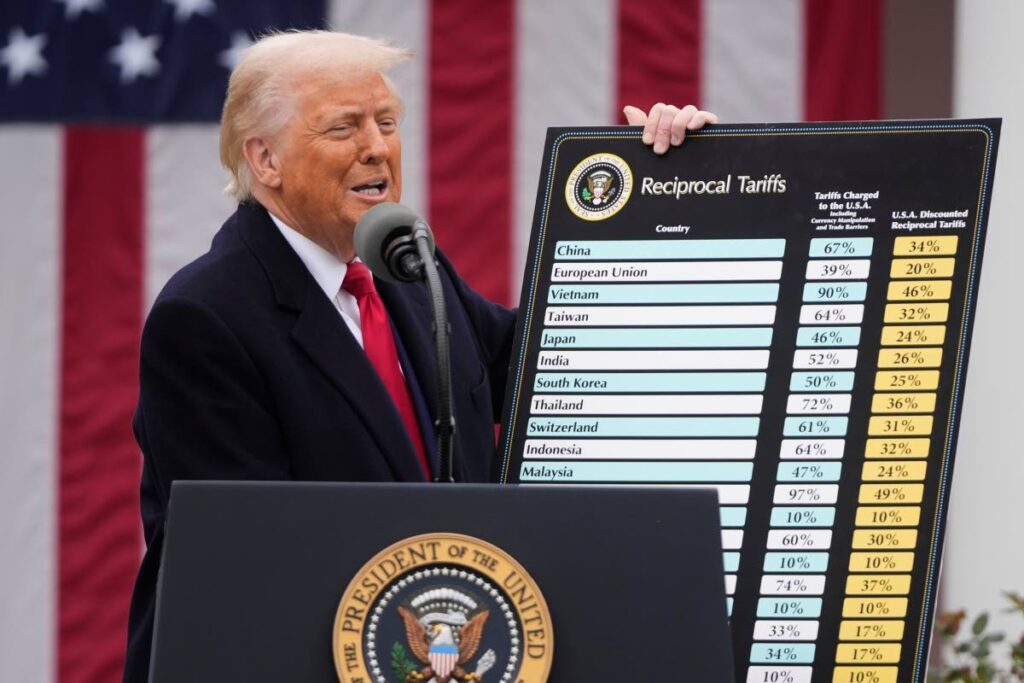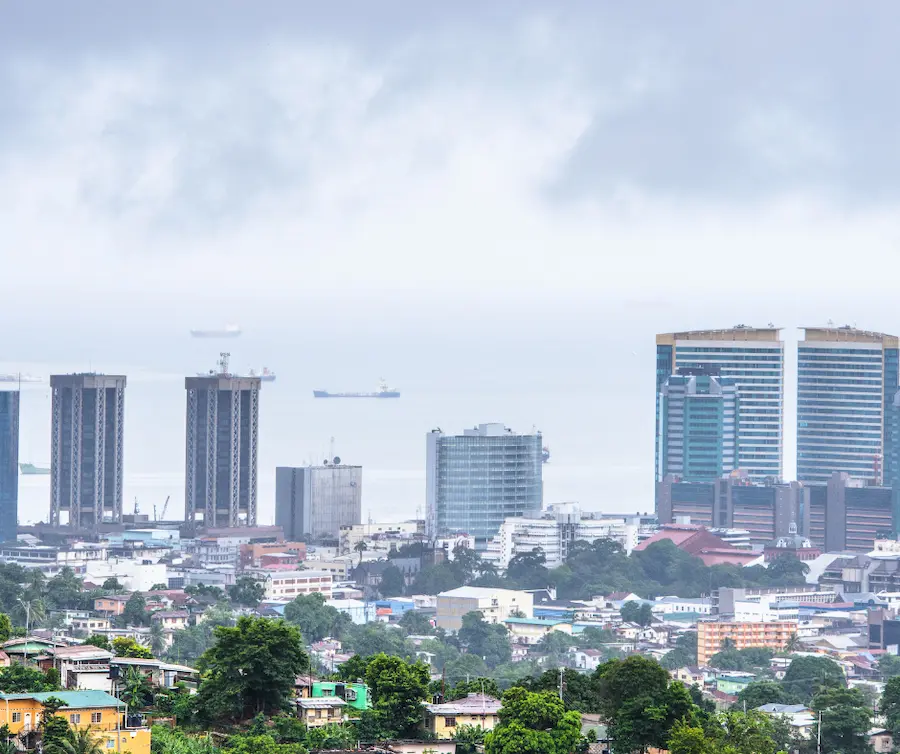

AP PHOTO
THE business community has expressed concern over the imposition of a 10 per cent tariff on Trinidad and Tobago’s imports to the US by that country's government as announced on April 2.
Several chambers have said the tariff has the potential to damage the already delicate trade relationship between the two countries.
“Concern was being expressed for some time that TT’s economy may be affected by Trump’s adjustments to the US trade regime,” said San Fernando Chamber president Kiran Singh.
He said that at first glance it would appear goods imported to the US from TT may become less competitive. “The US consumer will have to pay more for our goods,” Singh said.
President of the TT Manufacturers Association (TTMA) Roger Roach had similar sentiments. He said, on its own, the 10 per cent tariff on TT could cause competitive shocks. But the wide range of countries subjected to the new US tariff – 180 in total – makes it difficult to determine how the tariff will actually affect TT.
>
“It is hard to ascertain the full impact at this time until it is fully implemented and we get the data,” Roach said. “However our distributors have to be cognisant of this fact. What we will see is increased prices on the shelves in the US, unless some of the manufacturers are able to absorb it.”
Tobago Business Chamber president Martin George said while the tariff may not affect Tobago directly, in the larger TT context, it could have an impact on Tobagonians.
“When one looks at it there is very little that you can say to Tobago manufactures and Tobago exports to the US.
“However in the larger TT context it is going to be impactful. At the end of the day if this makes TT less competitive because our goods are now going to be higher priced, then it is something that affects us all.”
The Energy Chamber in a media release posted to its website said it too was also worried about the tariff but is still assessing the real impact.
“The chamber is consulting with member companies who are major exporters to the US and with government officials and other stakeholders in order to fully understand any potential impacts of new tariffs and identify any actions we should take on behalf of our members,” the release said.
But Singh said he expects government to engage the US on possible exemptions.
“We expect the minister of trade and the minister of foreign affairs will address the trade agreements and treaties we have with the US to ensure our preferential treatment as small island developing states are not eroded with the new tariff structure.”
At a post Cabinet media conference on April 3, the prime minister said he asked Minister of Trade and Industry Paula Gopee-Scoon to engage the US embassy to speak on possible exemptions and other methods of mitigation.
>
WARNINGS ON FOREX
Experts told Newsday the tariff could have an effect on goods in the US, which could have a ripple effect on TT.
Former minister in the ministry of finance Mariano Browne said the petrochemical and manufacturing sectors are the ones that are most at risk.
“We are the largest exporter of ammonia in the world but we are not the largest producer,” he said. “Many countries produce their own ammonia. It is an input in many things, in particular fertiliser. This tariff will have an effect in terms of how the market is.
“America is also a large producer of ammonia. So does that mean they will use their locally produced ammonia and will they have it in enough supply? These are the issues we don’t know.”
Economist Vaalmikki Arjoon said it was unlikely the tariff, while making goods more expensive for US customers, would reduce the volume of imports to the US, particularly in energy products such as ammonia.
“The US currently does not produce enough of these items to meet domestic demand, making continued imports from TT necessary,” he said.
“Furthermore, since this tariff applies to all US trading partners and ten per cent is the lowest rate, TT’s exports remain comparatively competitive in the US market, reducing the likelihood of any substantial drop in demand.”
He said because TT’s own tariff rates were at the base level, TT’s goods may become even more competitive than products from other countries.
>
“(This could) potentially boost their demand for our exports and not just energy commodities.”
Arjoon noted that higher US prices could require countries to use more forex to pay for imports from the US, which could have a trickle effect on TT’s economy given its already dire forex crunch. This could raise foreign exchange rates, even on the black markets, he said.
“With the availability of forex from banks becoming more restrictive due to lower export earnings from the energy sector, higher import prices may also drive more black-market purchases to source the required US to meet these higher prices."
He added that black market demand could increase black market rates which could be risky for TT’s economic well-being.
“It will drive up the cost of doing business leading to inflationary pressures and undermine investor confidence.
“Plus, higher black-market rates, restricted availability of forex from banks and higher prices from US suppliers may deepen the financial burdens of our private sector, especially the SMEs, causing them to downsize their operations, lower their product offerings, or even adjust their payrolls.”
Arjoon said this makes it critical for TT to increase its energy production as well as to expand export markets in the non-energy sector, to expand their export market share.


